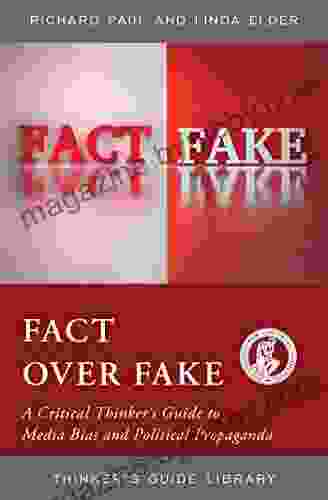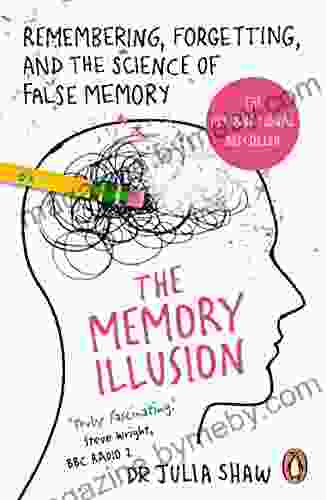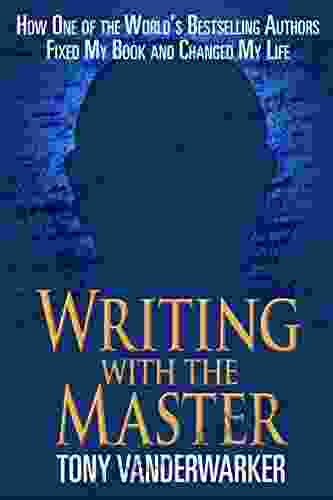Remembering, Forgetting, and the Science of False Memory: Unraveling the Mysteries of Memory

Memory is a complex and fascinating phenomenon that has captivated scientists and philosophers for centuries. It allows us to revisit our past, learn from our experiences, and make plans for the future. However, memory is not always reliable. Sometimes, we remember things that never happened, or we forget important events that we wish we could recall. These errors in memory can have serious consequences, both for individuals and for society as a whole.
In the book "Remembering, Forgetting, and the Science of False Memory," Dr. Elizabeth Loftus, one of the world's leading experts on memory, explores the fascinating world of human memory. She explains how memories are formed, stored, and retrieved, and she discusses the many factors that can lead to false memories. Loftus also provides practical advice on how to improve our memory and avoid being misled by false memories.
4.6 out of 5
| Language | : | English |
| File size | : | 2987 KB |
| Text-to-Speech | : | Enabled |
| Screen Reader | : | Supported |
| Enhanced typesetting | : | Enabled |
| Word Wise | : | Enabled |
| Print length | : | 319 pages |
The Nature of Memory
Memory is a complex process that involves many different parts of the brain. When we experience something, information is first encoded into our memory. This information is then stored in our brain, and later retrieved when we need it.
The encoding process is influenced by a number of factors, including our attention, our level of interest, and our emotional state. The more attention we pay to something, the more likely we are to remember it. Similarly, we are more likely to remember things that we find interesting or emotionally arousing.
Once information is encoded into memory, it is stored in a variety of ways. Some memories are stored in a short-term memory system, which can hold information for up to about 30 seconds. Other memories are stored in a long-term memory system, which can hold information indefinitely.
The retrieval process is also influenced by a number of factors, including our expectations, our beliefs, and our current environment. When we expect to remember something, we are more likely to do so. Similarly, when we are in a familiar environment, we are more likely to remember things that we experienced in that environment.
False Memories
False memories are memories of events that never happened. These memories can be very convincing, and they can be difficult to distinguish from true memories.
False memories can be created in a number of ways. One common way is through suggestion. If someone repeatedly suggests that we experienced a certain event, we may eventually come to believe that the event actually happened.
Another way that false memories can be created is through imagination. If we imagine an event happening over and over again, we may eventually come to believe that the event actually happened.
False memories can have serious consequences. They can lead to wrongful convictions, broken relationships, and psychological distress.
Improving Our Memory
While we cannot always prevent false memories from forming, there are a number of things we can do to improve our memory and reduce the risk of being misled by false memories.
One important thing to do is to pay attention to the information we are trying to remember. The more attention we pay to something, the more likely we are to remember it.
Another important thing to do is to try to understand the information we are trying to remember. The more we understand something, the more likely we are to remember it.
Finally, it is important to practice retrieving information from our memory. The more we practice retrieving information, the easier it becomes.
Memory is a complex and fascinating phenomenon. It allows us to revisit our past, learn from our experiences, and make plans for the future. However, memory is not always reliable. Sometimes, we remember things that never happened, or we forget important events that we wish we could recall. These errors in memory can have serious consequences, both for individuals and for society as a whole.
In the book "Remembering, Forgetting, and the Science of False Memory," Dr. Elizabeth Loftus explores the fascinating world of human memory. She explains how memories are formed, stored, and retrieved, and she discusses the many factors that can lead to false memories. Loftus also provides practical advice on how to improve our memory and avoid being misled by false memories.
If you are interested in learning more about memory, I highly recommend reading "Remembering, Forgetting, and the Science of False Memory." It is a fascinating and informative book that will change the way you think about memory.
4.6 out of 5
| Language | : | English |
| File size | : | 2987 KB |
| Text-to-Speech | : | Enabled |
| Screen Reader | : | Supported |
| Enhanced typesetting | : | Enabled |
| Word Wise | : | Enabled |
| Print length | : | 319 pages |
Do you want to contribute by writing guest posts on this blog?
Please contact us and send us a resume of previous articles that you have written.
 Book
Book Novel
Novel Page
Page Chapter
Chapter Text
Text Story
Story Genre
Genre Reader
Reader Library
Library Paperback
Paperback E-book
E-book Magazine
Magazine Newspaper
Newspaper Paragraph
Paragraph Sentence
Sentence Bookmark
Bookmark Shelf
Shelf Glossary
Glossary Bibliography
Bibliography Foreword
Foreword Preface
Preface Synopsis
Synopsis Annotation
Annotation Footnote
Footnote Manuscript
Manuscript Scroll
Scroll Codex
Codex Tome
Tome Bestseller
Bestseller Classics
Classics Library card
Library card Narrative
Narrative Biography
Biography Autobiography
Autobiography Memoir
Memoir Reference
Reference Encyclopedia
Encyclopedia Jon Peterson
Jon Peterson Jordan Sonnenblick
Jordan Sonnenblick Marie Aline Bawin
Marie Aline Bawin Stan C Smith
Stan C Smith Jonathan Green
Jonathan Green John Ogwyn Rees
John Ogwyn Rees Juan Carosso
Juan Carosso Julia Billet
Julia Billet Nirit Littaney
Nirit Littaney Megan Lane
Megan Lane Susan Evenson
Susan Evenson Laura Slater
Laura Slater Melinda Kay Busch
Melinda Kay Busch Josh Holliday
Josh Holliday Joseph Q Jarvis
Joseph Q Jarvis John Paul Stonard
John Paul Stonard Nancy Marie Brown
Nancy Marie Brown Leslie Kimmelman
Leslie Kimmelman Jan Bernard
Jan Bernard John Womack
John Womack
Light bulbAdvertise smarter! Our strategic ad space ensures maximum exposure. Reserve your spot today!

 Brenton CoxUnveiling the Secrets of Pop Music Success: John Seabrook's "The Song Machine...
Brenton CoxUnveiling the Secrets of Pop Music Success: John Seabrook's "The Song Machine... Henry HayesFollow ·5.7k
Henry HayesFollow ·5.7k Kurt VonnegutFollow ·17.2k
Kurt VonnegutFollow ·17.2k Peter CarterFollow ·14.7k
Peter CarterFollow ·14.7k Chance FosterFollow ·3.1k
Chance FosterFollow ·3.1k Giovanni MitchellFollow ·7.2k
Giovanni MitchellFollow ·7.2k Andres CarterFollow ·14.4k
Andres CarterFollow ·14.4k Isaiah PriceFollow ·10.3k
Isaiah PriceFollow ·10.3k Edmund HayesFollow ·3.7k
Edmund HayesFollow ·3.7k

 Efrain Powell
Efrain PowellCritical Thinker's Guide to Media Bias and Political...
In a world awash with information, it has...

 Aubrey Blair
Aubrey BlairMurder Is Bad Manners: An Unforgettable English Mystery
Prepare yourself for a captivating literary...

 Luke Blair
Luke BlairDon't Settle For Safe: Embrace Adventure and Live a Life...
<p>In this inspiring and...

 W.H. Auden
W.H. AudenRoblox Codes Dragon Adventures King Legacy All Combat...
Roblox is a massively popular online game...
4.6 out of 5
| Language | : | English |
| File size | : | 2987 KB |
| Text-to-Speech | : | Enabled |
| Screen Reader | : | Supported |
| Enhanced typesetting | : | Enabled |
| Word Wise | : | Enabled |
| Print length | : | 319 pages |














